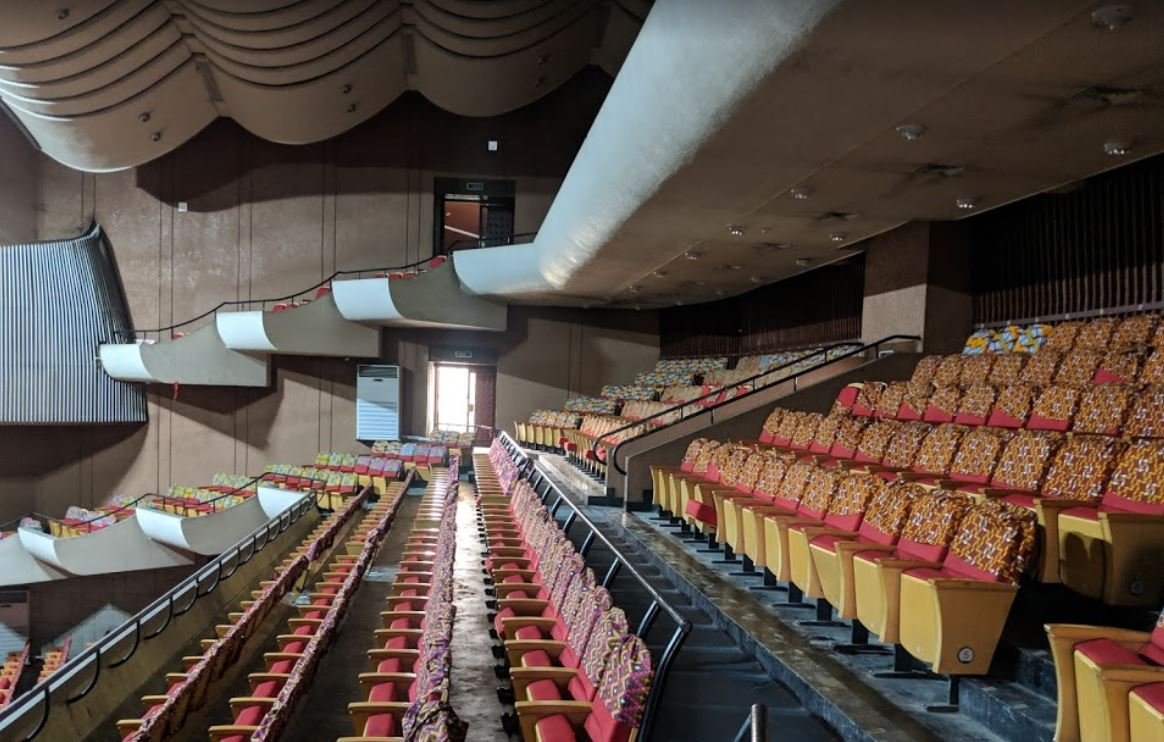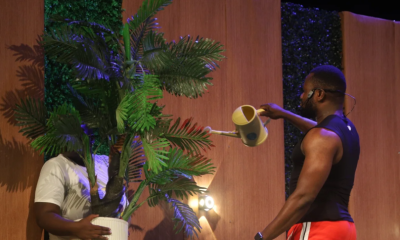Published
1 year agoon
By
Team
Ghana’s theatre and entertainment industry has faced significant challenges over the years, struggling to balance rising production costs with limited revenue streams.
Among the most pressing concerns is the 21.9% tax on ticket revenue, levied by the Ghana Revenue Authority (GRA), which industry stakeholders describe as a significant impediment to growth.
The tax burden, combined with high operational costs, has created a challenging environment for theatre producers, artists, and audiences. Industry experts are
calling on policymakers to implement reforms that would foster growth rather than stifle it.
“Theatre and live entertainment are essential to Ghana’s cultural identity and economic development. Yet, this 21.9% tax on ticket revenue makes it nearly
impossible for productions to break even, let alone thrive. The result is a growing reluctance to invest in creative projects, reduced employment opportunities, and a disservice to the promotion of Ghanaian culture,” said Kofi Adinkra, founder, Africa
Arts Network (AAN).
Multiple Taxation Points
Theatre productions and entertainment events face taxation at various stages, further compounding financial pressures on producers. These include venue rentals, production related goods and services, professional fees and the 21.9% taxes on ticket sales which directly impacts revenue, leaving producers with limited resources to cover costs or reinvest in future productions.
These multiple taxation points collectively reduce the profitability and sustainability of theatre productions and other live entertainment events.
High Costs and Narrow Margins
Theatre productions are already grappling with high costs, including venue rentals, technical equipment, marketing, and cast and crew salaries. With slim profit margins, the tax on ticket revenue adds an additional burden that threatens the viability of many productions.
Referencing the recent production of You Play Me I Play You, the Africa Arts Network revealed that “the production faced general high production costs across
the board, from logistics to marketing. While the tax burden compounded the issue, the overall expenses of staging such a production made it incredibly challenging to break even. We had to borrow money from other sources to pay debts and taxes, plunging the organisation further into financial strain,” Mr Adinkra explained.
“Imagine putting your heart and soul into a production, only to see nearly a quarter of your ticket revenue deducted in taxes. Producers are left with limited resources to cover their costs or reinvest in future projects,” Mr Adinkra added.
The Africa Arts Network also disclosed that it is being compelled to rethink its operations and ticket sales for the upcoming OB Amponsah stand-up comedy special, scheduled for 21st December 2024, 7pm at the Bukom Boxing Arena. To mitigate the financial strain and make the event accessible, AAN is considering an open free gate policy and an appeal for donations from attendees to support the production.
Impact on Audiences and Culture
The tax also risks alienating audiences by forcing producers to raise ticket prices.
This makes theatre and entertainment events less accessible to the average Ghanaian, reducing attendance and limiting the reach of cultural expressions.
“Theatre is a platform for storytelling, education, and cultural preservation. By pricing audiences out, we’re not only hurting the industry but also depriving communities of their cultural heritage,” Mr Adinkra said.
A Call for Reform
The Africa Arts Network is advocating for a comprehensive review of the tax regime and has proposed measures to support the industry’s growth:
1. Zero-rated tax on ticket sales: To allow productions to flourish in a growing industry.
2. Tax Incentives: Offer tax breaks for new productions and those that promote Ghanaian culture.
3. Reinvest in the Industry: Use a portion of the tax revenue to fund grants, subsidies, and infrastructure development for the arts.
4. Public-Private Partnerships: Facilitate collaborations between the government and private sector to support creative projects.
A Thriving Industry Benefits All
A vibrant theatre and entertainment industry would yield long-term economic and social benefits for Ghana, including job creation, tourism growth, and the global promotion of Ghanaian culture.
“This is not just about taxation; it’s about nurturing an industry with the potential to transform lives and enhance Ghana’s cultural standing. Productions like You Play Me I Play You demonstrate both the potential and the challenges we face. We urge the government to engage with stakeholders and implement policies that reflect the industry’s needs,” Mr Adinkra concluded.
The Africa Arts Network continues to promote the African experience through the creative arts and project it as a cornerstone of Ghana’s development, advocating for policies that enable the sector to reach its full potential.


Stage Play Review: “Love on the Ropes” Packs a Punch With Love, Lies, and Livestreams


Shirley Frimpong-Manso Makes Her Theatre Debut with ‘Honeymoon Hotel’ – Courtesy Africa Arts Network


Mawuko Kuadzi and His Team Present Artios Award to National Film Authority


Unlocking Audiences: Marketing Strategies for Theatre and Film at the International Theatre and Film Conference 2024


Stage Play Review: “Dubai or No Sex” – Uncle Ebo Whyte’s Exploration of Modern Marital Struggles


Ebo Whyte Starts Production Year With ‘Dubai Or No Sex’














